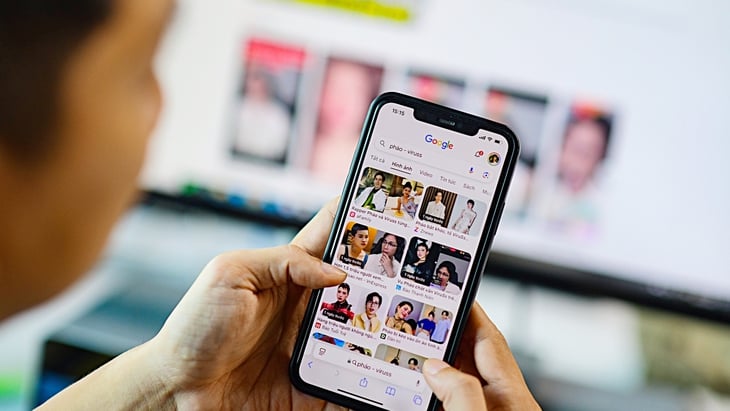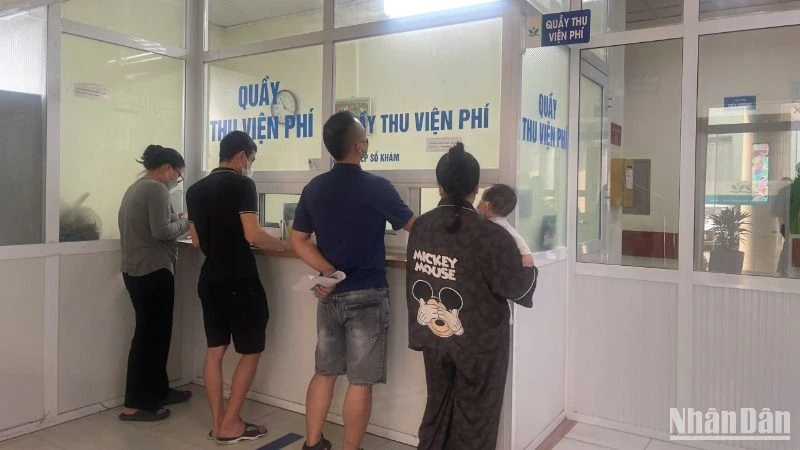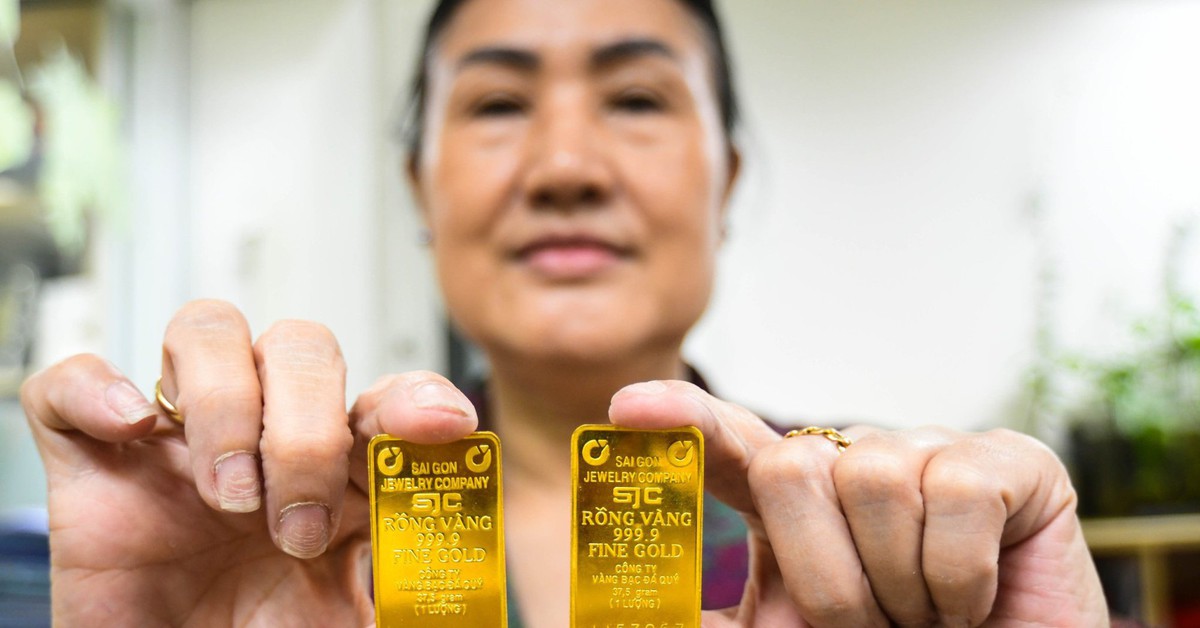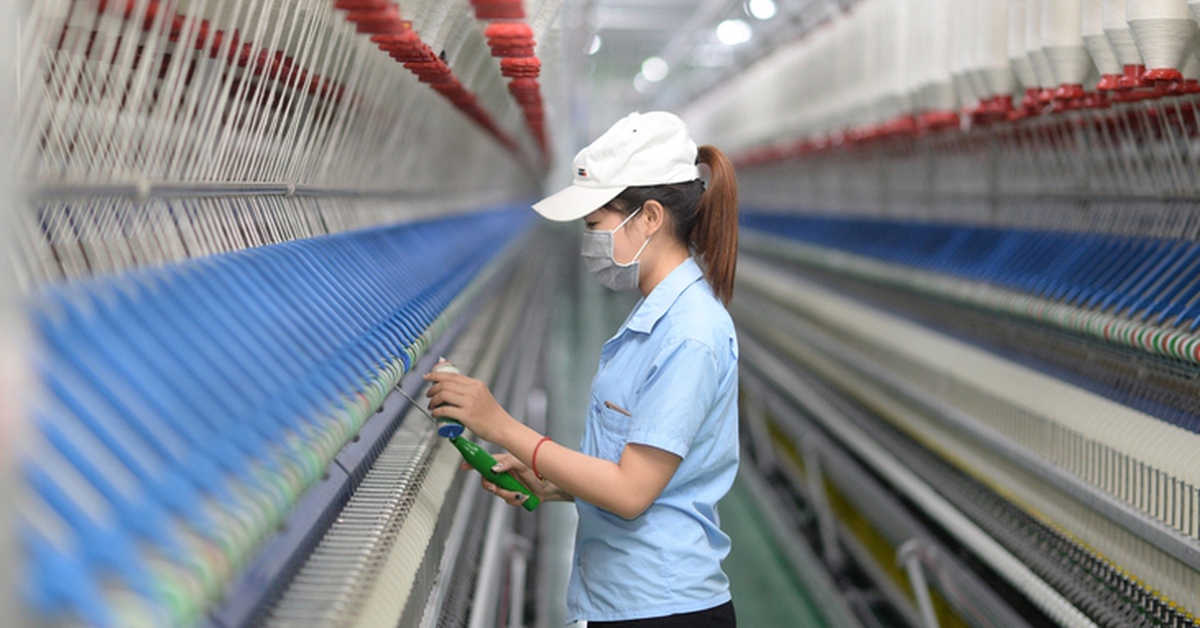
Doctor Hoang Quoc Lan warns that people who regularly stay up late and watch dramas can lead to lack of sleep, stress, and depression - Photo: BSCC
Recently, noisy incidents on social networks have made netizens "spend time and effort" to "watch the news". Although "watching drama" is not new, it is increasingly flourishing, flooding the internet, causing many negative consequences for psychology and health.
"Waiting for drama" across borders, all night long
There have been a series of recent social media scandals. Not only are the stories about the community controversial, but also the personal stories of celebrities have been discussed all night long.
After the story of false advertising of vegetable candy by Chi Em Rot, Quang Linh Vlogs, Hang Du Muc, Miss Thuy Tien, then there was the drama story of actor Kim Soo Hyun and the late actress Kim Sae Ron in the land of kimchi... which was hotly debated by the Vietnamese online community. After that was the scandalous story of "charity statement" of Pham Thoai and Me Bap, which was boiling.
The latest climax is the noisy love affair between streamer Dang Tien Hoang (ViruSs) and TikToker Ngoc Kem, making netizens unable to rest. During the live session, ViruSs's online confrontation with rapper Phao attracted a total of 4.8 million viewers, with 1.6 million people watching at the peak. Live viewers did not care about the night.
Although it is a personal love story, it has created a wave of debate and analysis of the "situation" in the social network community. Many people even pay money to be able to directly ask the people involved in their story.
"Gossip", "drama"... originated from curiosity and has now become "spiritual food" for social network users. These seemingly harmless habits actually pose risks that greatly affect both physical and mental health.
Many people like to "watch drama"
According to Master Hoang Quoc Lan - clinical psychologist at Phuong Dong General Hospital: "There are many reasons why people are attracted to scandals on social networks. It could be due to curiosity or the need for entertainment.
Stories with dramatic and controversial elements often easily stimulate curiosity and bring excitement to everyone.
People tend to seek out new information, especially sensational stories with many unexpected details. This creates an attractive feeling like watching a real-life movie, and on top of that, it is a famous character.
In addition, crowd psychology and social pressure also play a big role. When a controversial event occurs, many people discuss and share it, making others feel that if they do not follow it, they will be "lost", young people even use the word "fear of being "outdated" in their conversations", Dr. Lan analyzed.
Doctor Nguyen Huy Hoang, Vietnam - Russia Hyperbaric Oxygen Center, believes that Vietnamese people like to "watch drama" for many reasons. Firstly, Vietnamese people have a tradition of living together, like to share and discuss other people's private lives. Secondly, it is boredom in real life.
Pressure from work and study makes many people turn to drama as a way to relieve their emotions. Dramatic stories and "private" scandals bring strong feelings and satisfy curiosity.
"Understanding this psychology, social networking platforms such as Facebook and TikTok prioritize displaying controversial content to increase interaction, creating a "drama spiral" effect that makes it difficult for users to escape.
Ultimately, it is due to the fact that we are lacking healthy entertainment channels. The lack of cultural and community sports activities makes it easy for young people to get lost in the virtual world," said Dr. Hoang.
"Waiting for drama" causes unpredictable harm
Doctor Lan said: "Continuously watching drama, especially day and night, can greatly affect your psychology and health.
First of all, when constantly exposed to negative information, the brain is always in a state of tension, easily leading to psychological problems such as anxiety and stress.
In particular, "watching drama" too much can also make people more negative. When used to following and discussing sensational stories, many people tend to form the habit of judging, scrutinizing, and even looking at life in a more pessimistic way.
People addicted to social media and "drama addicts" are more likely to feel lonely. They are caught up in the virtual world, but invest little in real relationships, leading to a feeling of disconnection from the people around them.
Dr. Hoang believes that "drama addiction" causes users to be constantly exposed to negative information (cyber violence, criticism) which increases the hormone cortisol, leading to prolonged stress. Other people's drama affects one's own mood, which can gradually lead to emotional dependence.
Next is the loss of faith in society. Many people form the mindset that "everyone is bad" after witnessing a series of scandals, easily falling into a state of pessimism.

Young people search for information about popular dramas online - Photo: Q.D
Difficulty concentrating, insomnia
"Watching dramas makes many people lose their ability to concentrate. The brain is used to receiving information quickly and chaotically from dramas, making it difficult for young people to concentrate on work or study. They are easily manipulated by information, lose critical thinking and independent thinking, and easily judge others based on just a few fragmented pieces of information...
Ultimately, real-life skills and relationships are reduced. People who watch dramas easily make judgments and criticisms on social media, but are confused when it comes to dialogue or presenting issues in life. Relationships that require direct communication are reduced, while they get lost in virtual and toxic relationships on social media," said Dr. Hoang.
In terms of health, doctors say that when drama becomes a daily habit, it will cause users to have sleep disorders.
Staying up late to watch dramas disrupts the biological rhythm, causing insomnia and nervous breakdown. Staring at the screen for hours increases the risk of myopia, while a sedentary lifestyle leads to excess fat accumulation, increasing the risk of obesity. The consequence is a weakened immune system. Stress and lack of sleep reduce the body's ability to fight disease, making it susceptible to metabolic and cardiovascular diseases.
Stay alert, verify information
Associate Professor Tran Thanh Nam - Vice Principal of the University of Education, Vietnam National University, Hanoi - said that more and more young people are gradually considering the virtual world as real life. They will tend to care, discuss, and comment on everything according to their own subjective thoughts on the internet environment, through the computer screen.
There are even people who "watch drama" and want to see other people's embarrassment to "heal" themselves. They think that if famous people still suffer from it, then they are still lucky.
Stay alert and verify information before negative rumors spread.
"Ask yourself, is this relevant to me?"
"Watching drama" is like snacking, it can help entertain for a while, but if it goes too far, it will affect your spirit and living habits. It is important that each of us knows how to control and filter information. Not all dramas are worth paying attention to, especially negative stories and meaningless arguments. It is better to focus on positive content with real value.
Managing your social media time is also important. Set a daily limit to avoid getting caught up in the vortex of endless news scrolling, Dr. Lan recommends.
Before you spend too much time on a drama, ask yourself: Is this affecting me? Is it making me better? If it doesn't feel necessary, then maybe you should stop. Finally, occasionally trying a "Digital Detox" - that is, turning off your phone and taking a break from social media - is also a good way to help your mind relax.
Beware of FOMO syndrome
Dr. Lan said that "watching drama" is closely related to FOMO syndrome - that is, the fear of missing out. This creates a habit that is difficult to break: constantly checking social networks, constantly looking for new information, even about things that have no impact on your life.
Caught in that vortex, people easily lose their balance. The more they use it, the more they get caught up, and the harder it is to break free. And what are the consequences? Pressure, stress, and even depression if not controlled well.
The online community in general and young people in particular are the most vulnerable to FOMO, because they grew up in the age of social media, considering it an indispensable part of life. Without adjustments in perception and thinking, many young people can be trapped in this negative loop.
Source: https://tuoitre.vn/kiet-suc-vi-hong-drama-tren-mang-xa-hoi-20250330233024058.htm


![[Photo] Looking back at the impressive moments of the Vietnamese rescue team in Myanmar](https://vstatic.vietnam.vn/vietnam/resource/IMAGE/2025/4/11/5623ca902a934e19b604c718265249d0)


![[Photo] "Beauties" participate in the parade rehearsal at Bien Hoa airport](https://vstatic.vietnam.vn/vietnam/resource/IMAGE/2025/4/11/155502af3384431e918de0e2e585d13a)

















![[Photo] Summary of parade practice in preparation for the April 30th celebration](https://vstatic.vietnam.vn/vietnam/resource/IMAGE/2025/4/11/78cfee0f2cc045b387ff1a4362b5950f)



























































Comment (0)